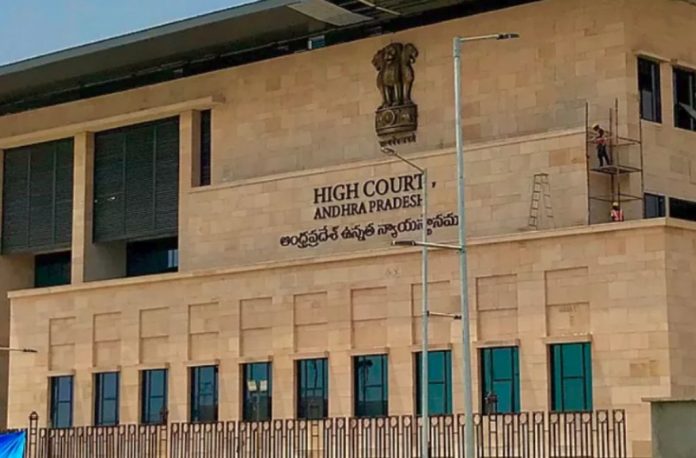The article is written by Ramya Thoti.
Table of Contents
Career in Judiciary
Judiciary is the most important branch of Democracy. It is designed to deal with the problems of society. Judge is the most important position in the Judicial System of India. Judges are responsible for administrating, interpreting and applying laws and to see that justice is done. It requires a lot of hard work, dedication and determination towards the Judicial System.
There are many career opportunities for a Law student however, the judiciary would be the most desired and respectable profession in the society.
However, there are many positions in Judicial services we are focusing mainly on the Post of Junior civil judge.
How to become a Junior Civil Judge in Andhra Pradesh?
Subordinate judiciary of a state is controlled by the state’s High Court. In Andhra Pradesh, High Court, Amaravati releases notification for the recruitment of the civil judge (Junior) every year. (Before the bifurcation of Andhra Pradesh the high court of AP was in Hyderabad)
The recruitment is of two types: Direct Recruitment and Recruitment by transfer. One must qualify the screening test and interview for getting the position of Judge.
Number of seats
In Junior Civil Judge, the recruitment is limited and very competitive. The number of seats varies from year to year depending on the necessity. Generally, they recruit between 20-32 candidates.
Eligibility Criteria
- Candidate must be a citizen of India;
- Candidate must have completed 3 years as a practising advocate (direct recruitment) with a maximum age limit of 35 years;
- Candidate must possess a law degree from recognized university or institution, and must be a confirmed member or approved probationer in section officers, Grade II officers etc. with maximum age limit not exceeding 48 years of age (in case of Recruitment by transfer); and
- A 5 years of age relaxation is given to the persons belonging to scheduled castes, scheduled tribes and other backward classes. And 10 years for the physically handicapped.
Mode of application
The applications are invited by the official website of AP High Court (www.hc.ap.nic.in ) and the candidate has to fill the form online and pay the prescribed fee amount through online only i.e. Debit card, Net banking etc.
The prescribed fee may vary from time to time. Well, at present, the fee is Rs. 800 but for the scheduled castes and Schedule tribes, the fee is Rs. 400 only.

Centres of Examination
In Andhra Pradesh, there are six examination centres for the judiciary examination. They are:
- Visakhapatnam
- Vijayawada
- Tirupati
- Guntur
- Rajahmundry (Rajamahendra Varam)
- Kurnool
Scheme of the examination
Preliminary exam
|
S.No. |
Scheme of exam |
Duration |
Marks |
|
1. |
Screening test (computer-based) Objective type |
2 hours |
100 |
Mains exam
|
S.No |
Scheme of examination |
Duration |
Marks |
|
1. |
Civil law |
1 hour |
100 |
|
2. |
Criminal law |
1 hour |
100 |
|
3. |
English translation and essay writing |
1 hour |
100 |
Viva Voice – 50 Marks
Syllabus
Civil laws
- Code of Civil Procedure, 1908
- Indian Contract Act, 1872
- Hindu Marriage Act, 1955
- Hindu Succession Act, 1956
- Indian Easements Act, 1882
- Specific Relief Act, 1963
- Limitation Act, 1963
- Transfer of Property Act, 1882
- Civil Rules of Practice
- Registration Act 1908, and Indian Stamp Act 1899
- P. Land Encroachment Act, 1905
- Andhra Pradesh Buildings (Lease, Rent & Eviction) Control Act, 1960
- Indian Evidence Act, 1872
Criminal Laws
- Code of Criminal Procedure, 1973
- Indian Penal Code, 1860
- Indian Evidence Act, 1872
- Negotiable Instruments Act, 1881
- Protection of Women from Domestic Violence Act, 2005
- Criminal Rules of Practice
- P. Excise Act, 1968
- P. Gaming Act, 1974
- Juvenile Justice (Care and Protection of Children) Act
How to prepare?
Being one of the prestigious and most respected positions in the society, and limited positions, the competition for the judicial examination is very high. But with a planned study schedule and focused study one can achieve the desired results.
Unlike judicial services of other states, Andhra Pradesh judicial services made the 3-year practical experience mandatory for the position of junior civil judge. So, it gives a lot of time to prepare and may also increase the level of competition.
- First things first, be thorough with the syllabus of the exam.
- You should be thorough with all the bare acts. The main function of the judiciary is to interpret laws, so how much you are prepared with the acts decides that you are ready for the screening exam.
- Study recent supreme court and high court judgements, it enhances the level of comprehending and also helps in drafting the articles.
- Be prepared with your own notes covering all the legal topics, judicial pronouncements etc. to avoid confusion in the later stages.
- For language read standard newspapers, magazines, law journals, etc. Improve your vocabulary. Try to improve regional language i.e. Telugu.
- Discuss topics with your colleagues or peers and seniors without any hesitation.
- Practice previous year question papers which are available online, and also try to attempt the mock tests.
- For current affairs and general knowledge read the newspapers, journals etc.
- And finally, revise all the portions you’ve done, It really helps a lot at the time of examination.
Mistakes to avoid while preparing
- Do not follow someone else’s study routine. Create your own comfortable study routine and try to follow it in a consistent manner.
- Do not postpone your study routine.
- Remember, that there are no shortcuts to achieve a goal. “You reap what you’ve sown”, so study smart, be consistent with your study routine, concentrate on what you are studying.
All the best
https://t.me/joinchat/J_0YrBa4IBSHdpuTfQO_sA
Follow us on Instagram and subscribe to our YouTube channel for more amazing legal content.
 Serato DJ Crack 2025Serato DJ PRO Crack
Serato DJ Crack 2025Serato DJ PRO Crack










 Allow notifications
Allow notifications


